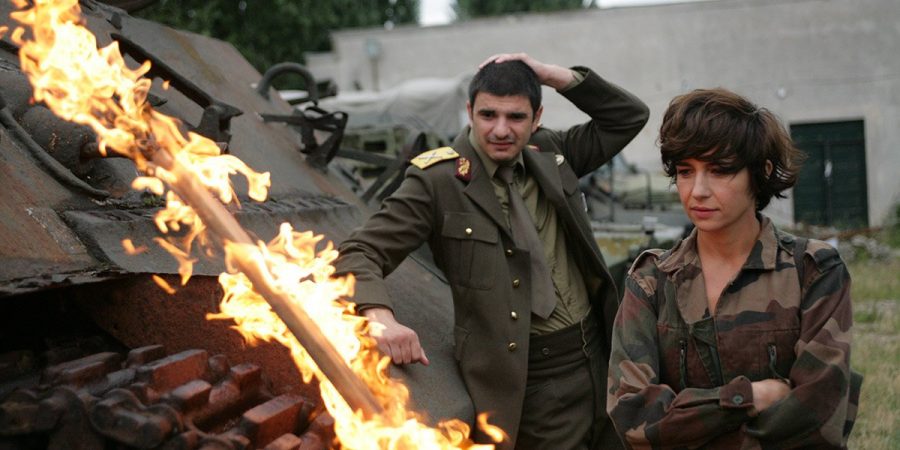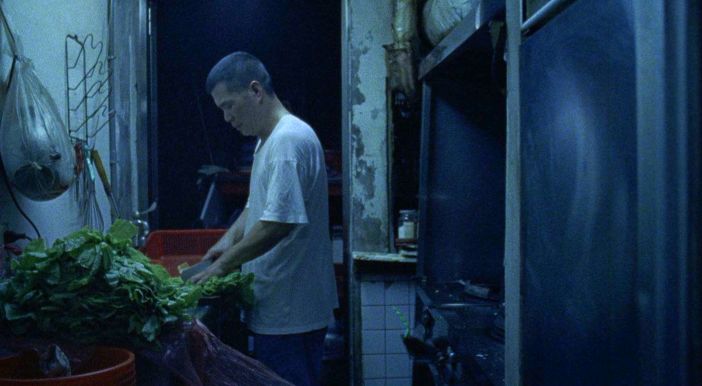20. Museo | Alonso Ruizpalacios | Mexico
The sophomore film of Alonso Ruizpalacios has two good for nothing slackers who want to take control of their lives and find a direction, the similar theme that Ruizpalacios impeccably handled in his debut film ‘Gueros’. What a quirky narration of such a layered and meditative plot.How smartly Ruizpalacios slips in history and beauty of Mexican landscape in this comedy caper. Rich in the score and beguiling cinematography adds originality to the narrative. Museo is a lyrical journey of our two 20 something protagonists into the abyss of failure which is heartbreaking. I wonder why we love losers so much.
19. Border | Ali Abbasi | Sweden
‘Border’ is a thought-provoking and equally potent allegorical drama that examines the most pertinent question on how and where you draw the line for different race and caste people who find themselves misfit in the non-indigenous community. As strange as others perceive those misfits in their society, the daunting feeling of displacement often makes a person more aware or push them on the edge of madness. Border tackles both the conundrums and examines the moral inclination of a character upon realisation of an individual’s origin. Read the complete review of the film from MAMI.
18. Long Day’s Journey into Night | Bi Gan| China
‘Long Day’s Journey into the night’ is a staggering achievement in technical craft of the film-making which is equally balanced with the lyrical expressionism. The young prodigious Bi Gan’s sophomore effort feels to have narrative constructed from the same genes as of his audaciously remarkable debut film Kaili Blues. He does not limit his narrative space to the residue of Kaili Blues, instead, he takes it one step further, enticing us with the narrative fragments nurturing on memory piece of the protagonists who rummage through them, soaking up his unforgettable romantic tryst.
The film featured in our list of 20 Criminally Underrated list of 2018.
17. Dogman | Matteo Garrone | Italy
Matteo Garrone’s ‘Dogman’ is a story of love and tragedy in the life of an ordinary man. The ordinary man caught between the love of his life, his only child, and a local gangster who embroils him in carrying out petty crimes. It’s a gritty drama set in the rural ruins where Marcello (Marcello Fonte) is pushed to the lowest abyss of meekness and desolation. It’s a gradual breakdown of a common man’s conscience. Read our complete review of the film here.
16. I do not care if we go down in History as Barbarians | Radu Jude | Romania
“I Do Not Care If We Go Down in History as Barbarians” is a smart, tricky, sarcastic, provocative and often ironically funny. The meta is three dimensional here. Layered like an onion, the film is an audacious, unadulterated look at the most debatable history chapter of 1941 Odessa Massacre in Romania, it also chronicles the struggle a filmmaker faces to make a film in general and on historical events that might not please the government. Read our complete TIFF review of the film here.
15. Hotel by the River | Hong Sangsoo | South Korea
Hotel by the river is a beautiful painting, shimmering in the reflection of melting sun on the snow-clad mountain, tainted by an existential poet and an ex-lover. A parallel narrative of a bittersweet & awkward family reunion patiently & gently intersects with an ex-lover’s pain, both physical and moral, in Hong Sangsoo’s melancholic, often self-referential film. Read our TIFF review of the film here.
14. Climax | Gaspar Noe | France
At the succinct running length of 96 minutes, Gaspar Noé’s Climax is the cinematic experience of the year that provocatively dazzles with raucous energy. It’s a wild celebration of debauchery. It is an orgy of music and dance; a pulsate hammering to the senses. Noe seduces us into the world of a trippy, disorientating experience through heart-pounding sounds, groovy music and the barrage of disconcerting visuals, that subsequently descend into mayhem and chaos. Noe alternates between a frantic bad trip and the sinister human drama under the influence of drugs. It’s everything you expect from Noe’s film and some more. Read our review of Climax here.
13. Happy as Lazzaro | Alice Rorhwacher | Italy
Alice Rorhwacher has established herself as a talented auteur with his third film, Happy as Lazzaro that competed for the Palm d’Or this year. Though it lost the Palm d’Or to Hirokazu Kore-eda’s Shoplifters, she did win the best screenplay award at Cannes.
Alice layers the narrative of ‘Happy as Lazzaro’ with socio-economical exploitation, consumerist ideology and classism shift in Italy, neatly wrapped up in magical realism. In the film, where everyone is exploiting someone, the lead protagonist, Lazzaro – naive, duteous young boy who can not say ‘no’ – lies at the bottom of this exploitative pyramid, he becomes the personified figure of goodness that this world needs more than ever. You can read our complete critical piece here.
12. Non-Fiction | Olivier Assayas | France
Olivier Assayas’s “Non-Fiction” is a sly and thoughtful commentary on the dynamics of relationship during the new technological transitions. It’s nearly two hours of candid conversations, dissecting the commerce of literary world affected by modern machination and a gradual shift in their personal lives, evoking the feeling of watching a Woody Allen film.
11. Closing Time | Nicole Vögele | Switzerland
Closing Time opens a time portal to the lyrical mundanity of quotidian characters in the stillness of the night. Highly meditative and sedately paced, Closing Time is poetry in motion, an intense mood piece. It’s an awe-inspiring journey through the passage of time, where the sky has turned purple. The cloud has cracked open and cantankerously torrenting rains has compelled the stillness of night to dance to its tune. The insomniac roads have sprawled in the heart of Taipei, and dreams, well, they should be left untouched.
The film asks for absolute patience on the audience part, as the narration of “Closing Time” is driven by quotidian visuals that are sprinkled with frivolous conversations at long intervals. The third act gives a whole new dimension to the film, also acts as a wake-up call for us who are embroiled in our real life. Nature and the world have so much to offer, and instead, we have tricked ourselves in an ordered time loop of modern slavery to make it our own reality. You can read the complete review of the film here.













